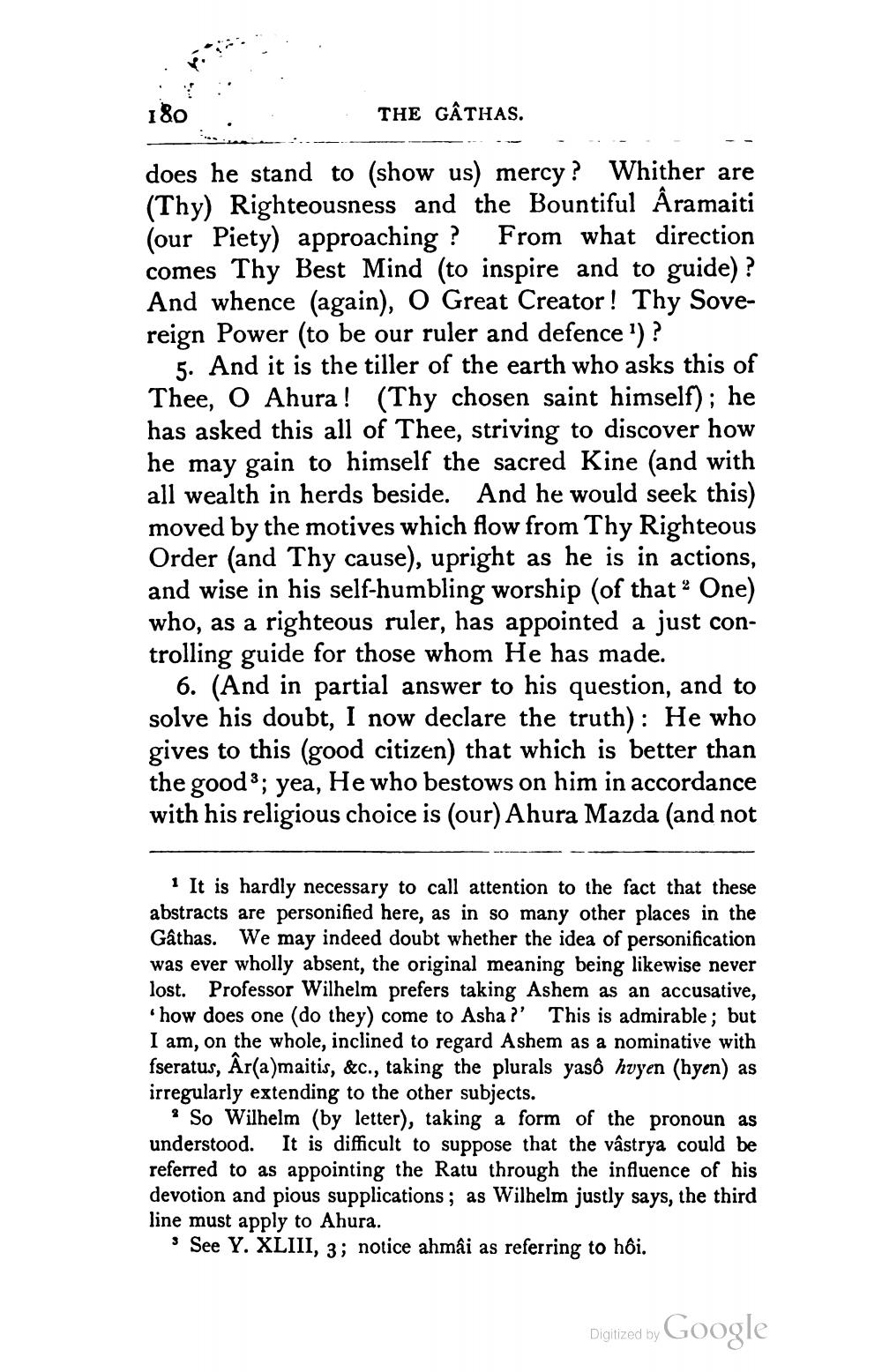________________
180
.
.
. THE GÂTHAS.
does he stand to (show us) mercy? Whither are (Thy) Righteousness and the Bountiful Aramaiti (our Piety) approaching? From what direction comes Thy Best Mind (to inspire and to guide) ? And whence (again), O Great Creator! Thy Sovereign Power (to be our ruler and defence ') ?
5. And it is the tiller of the earth who asks this of Thee, O Ahura! (Thy chosen saint himself); he has asked this all of Thee, striving to discover how he may gain to himself the sacred Kine (and with all wealth in herds beside. And he would seek this) moved by the motives which flow from Thy Righteous Order (and Thy cause), upright as he is in actions, and wise in his self-humbling worship (of that? One) who, as a righteous ruler, has appointed a just controlling guide for those whom He has made.
6. (And in partial answer to his question, and to solve his doubt, I now declare the truth): He who gives to this (good citizen) that which is better than the good3; yea, He who bestows on him in accordance with his religious choice is (our) Ahura Mazda (and not
" It is hardly necessary to call attention to the fact that these abstracts are personified here, as in so many other places in the Gathas. We may indeed doubt whether the idea of personification was ever wholly absent, the original meaning being likewise never lost. Professor Wilhelm prefers taking Ashem as an accusative,
how does one (do they come to Asha?' This is admirable; but I am, on the whole, inclined to regard Ashem as a nominative with fseratus, Ar(a)maitis, &c., taking the plurals yasố hvyen (hyen) as irregularly extending to the other subjects.
? So Wilhelm (by letter), taking a form of the pronoun as understood. It is difficult to suppose that the vâstrya could be referred to as appointing the Ratu through the influence of his devotion and pious supplications; as Wilhelm justly says, the third line must apply to Ahura.
See Y. XLIII, 3; notice ahmâi as referring to hôi.
Digitized by
Digitized by Google




